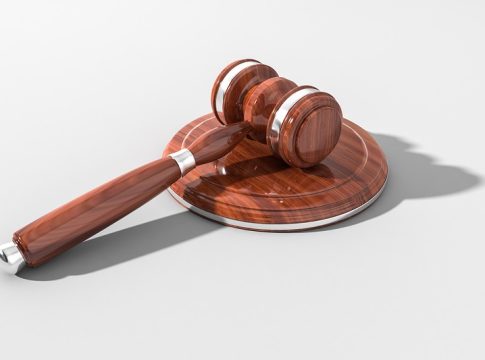Criminal justice is a continually evolving field, shaped by landmark cases that resonate not only within courtrooms but also within society at large. The stories of justice, injustice, and redemption remind us of the complexities surrounding law, morality, and human rights. We all have a stake in understanding how these pivotal moments have paved the way for lasting reforms and influenced the legal landscape. Whether you’re a legal enthusiast or just a curious reader, knowing about these cases will enhance your appreciation for the system that aims to protect us all.
1. The Trial of the Chicago 7
In the late 1960s, a group of anti-Vietnam War activists became the center of a high-profile trial for conspiracy and inciting riots during the Democratic National Convention. The Chicago 7 trial became a symbol of political dissent and the struggle for civil liberties. The verdicts were controversial and revealed deep divisions within American society. This case opened the doors for greater protections of free speech and highlighted the need for fairness in the judicial process, influencing how courts deal with cases involving political protests even today.
2. Brown v. Board of Education
One case that stands as a monumental turning point in American history is Brown v. Board of Education. Decided in 1954, this landmark Supreme Court ruling declared that racial segregation in public schools was unconstitutional. The case not only sparked the Civil Rights Movement but also served as a catalyst for broader legal changes regarding equality and civil rights. It redefined justice in America, showing how societal norms could be challenged and dismantled through legal means. The implications of this case are still felt today as discussions on educational equity continue.
3. Miranda v. Arizona
The 1966 Supreme Court case Miranda v. Arizona fields a profound impact on criminal justice procedures. Ernesto Miranda’s confession was deemed inadmissible because he wasn’t informed of his rights. This led to the establishment of the "Miranda Rights," which require law enforcement officers to inform suspects of their rights upon arrest. The case underscores the importance of protecting the rights of individuals in legal proceedings, and it strives to ensure that everyone is afforded due process, which is vital to maintaining a fair justice system.
4. Roe v. Wade
Roe v. Wade is perhaps one of the most divisive cases in American legal history. In 1973, the Supreme Court recognized a woman’s right to choose abortion under the constitutional right to privacy. This case not only reshaped reproductive rights but also highlighted the intersection of law and personal liberties. It spurred ongoing debates on women’s rights and bodily autonomy, ultimately influencing numerous laws and political dialogues in both the United States and around the world. The arguments and implications from this case reverberate into the present day, reminding us of the continuous struggle for individual freedoms.
5. O.J. Simpson Trial
The 1995 trial of O.J. Simpson captivated the nation, showcasing the intricate relationship between celebrity, race, and the criminal justice system. The case became a litmus test for the sociopolitical climate of America, illustrating the complexities surrounding race relations and media influence in legal proceedings. The trial raised essential questions about justice that persist today, including whether high-profile individuals receive different treatment in the legal system. This case serves as a constant reminder of the need for transparency and equality before the law.
6. United States v. Nixon
Addressing the limits of executive power, United States v. Nixon became a pivotal case during the Watergate scandal in 1974. The Supreme Court ruled that President Nixon had to release audio tapes relevant to the investigation, reinforcing the principle that no one is above the law. This case fostered a greater understanding of checks and balances within government and emphasized the importance of accountability, influencing how subsequent administrations perceive executive privilege and transparency in government actions.
7. Atkins v. Virginia
In 2002, the Supreme Court ruled in Atkins v. Virginia that executing individuals with intellectual disabilities constitutes cruel and unusual punishment, which is prohibited by the Eighth Amendment. This case brought forward a much-needed dialogue about mental health and the capacity to understand one’s actions. The significance of this ruling extends beyond the courtroom, advocating for humane treatment within the justice system. It spurred legislative changes in various states to ensure fair treatment for individuals with disabilities, reflecting the evolving standards of decency in society.
The Ripple Effect of Justice
The aforementioned cases are more than just historical footnotes; they are reminders of how the struggle for justice evolves and how societal values shape legal interpretations. Their legacies continue to influence policies, inspire activists, and challenge the status quo. Understanding these landmark cases can empower citizens to engage with the justice system more meaningfully, advocating for change and ensuring that everyone’s rights are protected.
What are your thoughts on these landmark cases? Have they influenced your perspective on criminal justice? Share your experiences or opinions in the comments!

Covers viral stories, pop culture, and breaking celebrity news.
Bio: Jamie has a sharp eye for what’s buzzing online, tracking social media trends and entertainment headlines around the clock.

